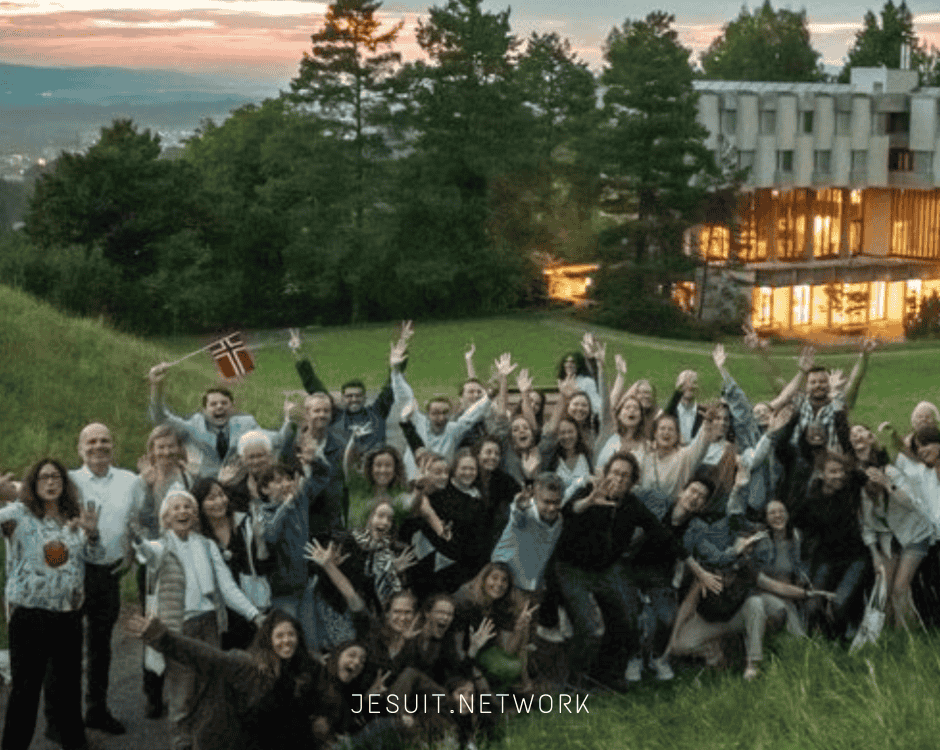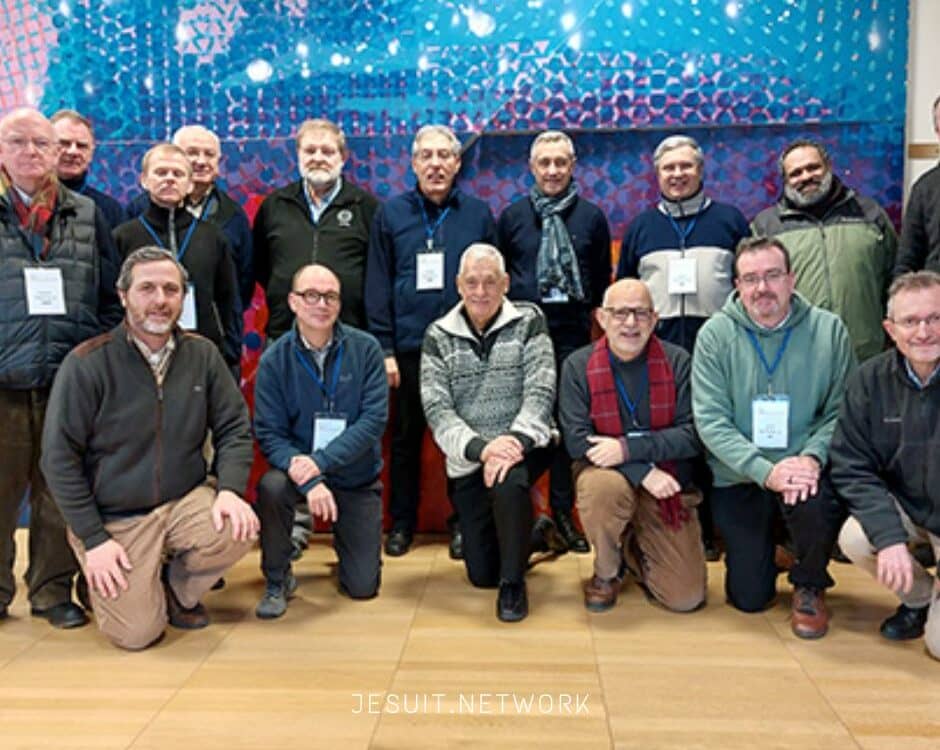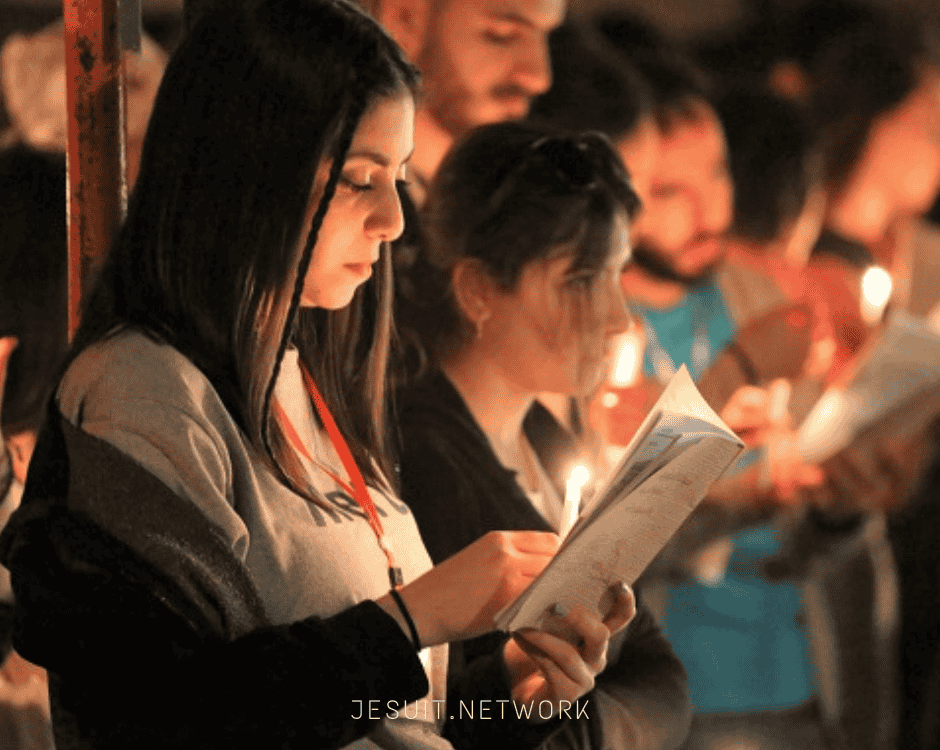This website uses cookies so that we can provide you with the best user experience possible. Cookie information is stored in your browser and performs functions such as recognising you when you return to our website and helping our team to understand which sections of the website you find most interesting and useful.
Rediscovering Collaboration as Grace
Perspectives on collaboration, networking and discernment in apostolic planning.
From the moment I was asked to prepare a text on collaboration, I wondered how to develop what has already been written on this issue. GC 35 states: “To respond today to the pressing needs of our complex and fragile world, we certainly need many hands”(1). Many other articles and decrees make similar invitations, and I struggled to find a relevant and adequate approach to the topic. It seemed relevant to me to draw on my experience in coaching and to offer some perspectives on attitudes that favor collaboration. However, I was aware that there is an often frustrating gap between understanding what collaboration theoretically implies and living with a collaborative attitude. I wondered how we can begin to apply what we know in the light of Ignatian tradition and discernment.
In the midst of all this and despite a certain sense of exposure and vulnerability associated with this writing exercise, given that I have not been involved in apostolic planning for that long, there was a deep desire to recognize God’s call and an increasingly intense belief that the relevant collaboration for our mission today is not only effective collaboration, but also the affective and discerning encounter that we are called to rediscover as an opportunity for grace.
Emerging issues in the area of collaboration
In business circles, interest in the topic of “collaborative competencies” has grown considerably in recent years, and requests for training courses have become frequent. Having been involved in similar discussions in the context of designing learning seminars on the subject, I list below some of the themes that have emerged from our work(2).
A recurring finding in the discussions was that the interest of organizations goes beyond collaborating for the sake of collaborating. Challenges are becoming too complex to be solved individually, and the ability to generate adaptive solutions is increasingly dependent on the ability to collaborate(3). Discussions therefore focused on promoting purposeful collaboration, seizing opportunities and solving problems that cannot be solved alone, rather than simply fostering team spirit or adopting a style that fosters positive relationships.
The reality of our interdependence has also highlighted the need to develop a new personal and organizational relationship with power, as well as a new understanding of information, contacts and resources, understanding them more as collective means of achieving a common purpose than as individual possessions.
It was also noted that the knowledge we possess today runs the risk of becoming obsolete in a few years, which accentuated the need to look beyond our current expertise and reach out to others.
With all the complexity and challenges that this new orientation brings, collaboration also promises to add depth, creativity and innovation in the workplace. In this context, institutions were interested in identifying the skills and competencies needed to create more collaborative cultures. In summary, and by no means exhaustive, the list included:
- Commitment to collaboration as a way to completely redefine the future (staying in touch with the reason to collaborate and the desired outcome of that effort).
- Development of the capacity to generate innovative solutions (creativity and resilience when encountering resistance).
- Commitment to the continuous development of oneself and others (continuous training, availability and willingness to carry out coaching with collaborators, openness to the opinions and criticism of others, considering mistakes as learning opportunities).
- Self-awareness (paying attention to one’s own emotions and reactions).
- Interpersonal understanding (empathy, taking the other’s perspective, acceptance of difference) and ability to handle complex situations and relationships.
- Positive outlook (confidence in oneself and one’s own abilities) and ability to elicit trust.
- Sharing power and credit for results (recognizing the limits of one’s authority and opening spaces for others).
- Transmit energy to the group and create a communicative environment within the group (develop dialogue skills and facilitative approaches).
- Create diverse and integrated networks (establish connections, linking ideas, people and resources).
While offering relevant insights, the perspectives just noted seem to inform our minds only as to what collaboration entails. Beyond the technical skills and processes that underpin it, it would seem that the task of fostering real collaboration in our external environment requires inner work that is far from easy to accomplish. Building trust involves creating authentic connections and developing an emotional safety that allows people to fully manifest themselves to others, take appropriate risks and expose vulnerabilities. It is an interpersonal effort that requires taking time to build relationships and get to know the people with whom we cooperate, considering them as capable as we are, approaching them with openness and without arrogance, trusting in our ability to inspire them rather than pressuring them with our status or title. Consciously empowering means relinquishing our control over the project and trusting the group and its ability to function without us, limiting ourselves to directing its course.
Even the more technical skills, such as developing facilitative approaches or networking, come with their own challenges. What seems more relevant than improving our dialogic techniques for collaboration is increasing awareness of the traps into which we can easily fall when our communication skills become tools of manipulation and control. Similarly, even if personal networking is not in itself a demanding challenge for some of us, growing in generosity to put this zone of influence at the service of the mission we share is harder.
Despite all these prospects for transforming our organizational culture and promoting a new way of collaborating and networking in the apostolic works at hand, the focus should be on increasing our capacity to collaborate rather than simply acquiring new skills. With discernment, Ignatian spirituality offers us a relevant practice capable of helping us to integrate these attitudes and renew our alliances for mission.

Discernment and collaboration: a transformative encounter with others
This discernment approach to collaboration is not so much a ritual in which we participate in order to improve the way we work together as it is an ongoing openness to the recognition of God’s active presence in all our collective work. It invites us to enter into the process while keeping God before us and tries to see the experiences of collaboration we live as he would see them; it encourages us to enter into the process with a generous disposition of spirit, striving to find in others a part of the divine. Through this presence of God, who invites us to collaborate with him, and our receptivity to it, through our openness to others, collaboration becomes a transformative encounter.
Considering recent experiences of apostolic collaboration(4), I can share how much the attitude of discernment and the experience of the Spiritual Exercises have helped us to move from merely understanding what collaboration requires to trying to live in collaboration with others. Without generalizing this to any kind of association or alliance, I share below some of the learning and graces that these experiences have brought.
A place for challenging personal renewal
I have learned much more about collaboration by practicing it than by reading about it. Through discernment, working with others became an opportunity to learn more about ourselves. As we became more present to others and to our inner motions, we began to recognize personal fears, prejudices and resistances. With Christ at the center of this process, we also found graces of strength, courage and compassion toward others and ourselves.
Not always comfortable
Each experience carried its own set of tensions and temptations, which have not always been easy to recognize or manage. The traps of control, image and judgment are always in plain sight. The temptation to narrow and silence our individual perspectives under the guise of collaborating better with others is also real, as is the risk of becoming self-sufficient, ignoring others and acting independently. As Pope Francis pointed out, for Ignatius discernment was “an instrument of struggle to know the Lord and to follow him more closely”(5). Adopting an attitude of discernment and keeping our attention focused on Christ helped our struggles bear fruit. Collaboration became an opportunity to both self-affirm and show ourselves fully, sharing with others what we know and who we are while remaining open to what they individually bring to this relationship.
The grace of spiritual conversations
Taking time to pray together and engage in spiritual conversations helped lay the foundation for a trust that later, when tensions arose, facilitated our work. The level of freedom in being seen in our authenticity is based on taking time to listen, offering safe spaces free of judgment, taking the risk of revealing to others both our gifts and imperfections and a deep desire to encounter God. The experience of creating openings and clearings to share and become present to what was moving within each of us was often invigorating, not least because sharing connects people (I say this because at times the conversations were exhausting and frustrating). What made some experiences quite exhilarating was the dual fact that, on the one hand, in the discernment and in our personal openness the prayer times were a place to experience God and that, on the other hand, the spiritual conversations that followed gave us an opportunity to share each other’s consolations. In these experiences, the process released an energy and creativity that made our work not only more effective, but also considerably more consoling.

The grace of sharing the mission
Being appointed, as a lay woman, by a Jesuit superior or an institution to participate in apostolic projects usually means that one enjoys less authority and encounters more limits when it comes to work. However, staying connected through discernment to the common vocation that had brought us together generated an enthusiasm and – dare I say it – a positive awareness of being bearers of rights that made each and every one of us an integral part of the mission. The desire to carry forward the same mission was, in a broader and deeper way, the key element that connected us to one another and from which all the networking and integrating effort that followed sprang.
A bold proposal
Apart from developing our technical skills and adapting our structures to facilitate working together, combining collaboration, networking and discernment in apostolic planning brings about a new style of living the common mission. Our response to this call can renew the way we do things, as well as, possibly, change us on the inside; for, in addition to the invitation to disengage, be humble and embrace the ambiguity of discernment, living collaboration with an open mind and heart promises us the grace of working with God.
——— Notes
# CG35,D6,n.30.
# These seminars were designed, in collaboration with Nicole Abboud Bakhache, for a number of Middle Eastern organizations and were based on the research work of David Chrislip (2002); David Archer and Alex Cameron (2008); Jonathan Clark (2008); and Hank Rubin (2009).
# Solutions to today’s challenges no longer depend on a single individual in a position of authority, but on the collective intelligence of stakeholders and affected people (//stakeholders//) at all levels. For more details, cf. the work of Ronald Heifetz (adaptive leadership).
# I refer to my activity in the Near East Province, my collaboration with JRS Syria on leadership development for their teams and my work with the CEP (European Conference of Provincials) and the Commission on Discernment and Apostolic Planning on Ignatian Leadership and Discernment in Common.
# Extracted from an exclusive interview with Pope Francis by Antonio Spadaro SJ.
This article was published in the Promotio Iustitiae n.125 in 2018. Sandra Chaoul is part of the Ignatian Leadership Project team, Europe.





